 Back to the Be Inspired Blog
Back to the Be Inspired Blog
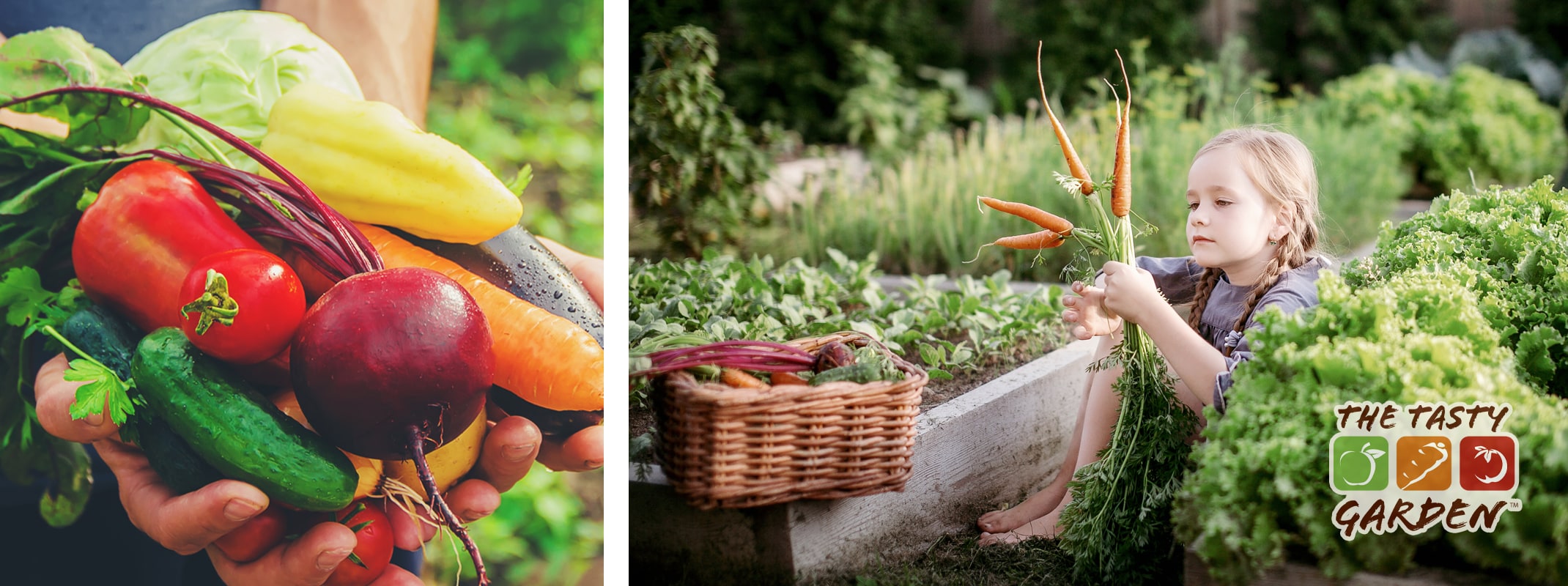
Grow Your Own: Veggies, Herbs & Small Fruits for Every Garden Size
Grow Your Own: Veggies, Herbs & Small Fruits for Every Garden Size
Whether you have a small patio, a modest backyard, or room to expand, growing your own food is incredibly rewarding—especially in the Bay Area, where our mild climate allows for year-round gardening. At SummerWinds Nursery, we’ve got everything you need to get started, but what about how to plan your edible garden?
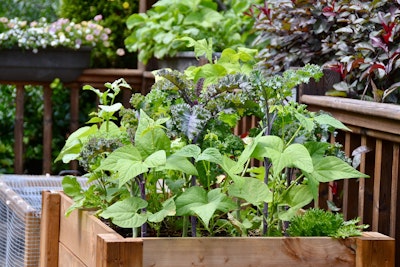
The best edible gardens begin with plants you and your family love to eat—because nothing beats picking fresh produce you actually enjoy eating fresh or cooking with. But if you’re new to gardening or want to create a well-rounded, versatile garden, we’ve put together a list of tried-and-true favorites that are easy to grow, productive, and full of flavor.
Here’s your guide for growing vegetables, herbs, and small fruits based on the space you have available—plus tips for maximizing your harvest through succession planting, making smart plant choices, and using the right organic products for long-term success.
Location, Sun & Success
No matter how big or small your garden is, sunlight is key to success.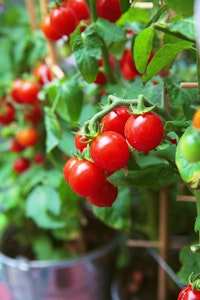
- Most edible plants thrive with:
- 6 to 8 hours of direct sun per day
- Morning sun is ideal, as it’s less intense and helps dry off leaves (reducing fungal issues)
- Partial sun (4–6 hours) can still support leafy greens and some herbs
Before planting, observe how much light your space receives and plan accordingly. If your garden is on the shadier side, don’t worry—we’ll suggest plants that can still thrive in lower light!
Small Garden (Approx. 4' x 4' space or a few containers)
Perfect for patios, balconies, or entryways. | Ideal Sun: Full to partial sun (at least 4–6 hours)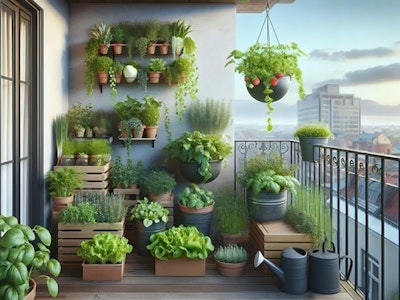
What to Grow:
- Leafy Greens: Lettuce, spinach, arugula – fast-growing and shade-tolerant
- Herbs: Basil, cilantro, thyme, parsley, mint (mint does best in their own container)
- Compact Veggies: Cherry tomatoes, radishes, bush beans, peppers (Ask your local SummerWinds experts for a list – kitchen mini – do we have these?)
- Small Fruits: Strawberries – perfect for hanging baskets or strawberry pots
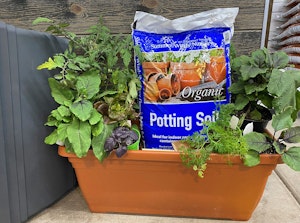
Why These Work:
These plants are compact, quick to harvest, and ideal for containers or small raised beds. You can tuck herbs between veggies and harvest greens multiple times through succession planting.
Soil & Fertilizer Tips:
Use SummerWinds Potting Soil for containers or E.B. Stone Organics Raised Bed Mix for small beds. Start with E.B. Stone Sure Start and follow up with E.B. Stone Organics Veggie & Fruit Food every 4–6 weeks.
Medium Garden (Approx. 6' x 10')
Great for a backyard bed or a series of raised beds | Ideal Sun: At least 6 hours per day
What to Grow:
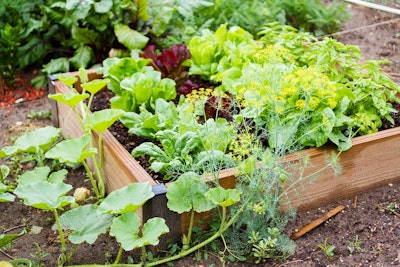
- Everything from the small garden list, plus:
- Root Veggies: Carrots, beets, onions
- Cucumbers: Trellised to save space
- Zucchini or Summer Squash: High producers
- Blueberries: Grow in pots or raised beds with acidic soil and morning sun
Why These Work:
This space gives you room to stagger plantings—great for succession crops like lettuce, carrots, and bush beans—and allows for a mix of quick-growing and long-season veggies.
Pro Tip:
Plan for staggered sowing—plant new rounds of greens and beans every 2–3 weeks to extend your harvest window.
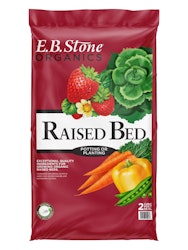
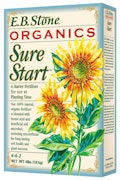 Soil & Fertilizer Tips:
Soil & Fertilizer Tips:
Use E.B. Stone Raised Bed Mix in beds, enriched with Sure Start at planting and Veggie & Fruit Food throughout the season.
Large Garden (Approx. 10' x 20' or larger)
Perfect for families or serious home gardeners | Ideal Sun: Full sun (6–8+ hours daily)
What to Grow:
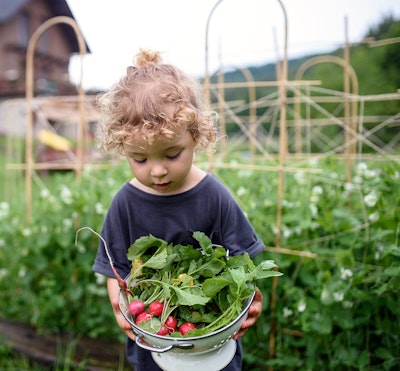
- Everything from the small and medium garden lists, plus:
- Tomatoes (larger varieties): Roma, Beefsteak, or heirloom types
- Winter Squash & Pumpkins: Use a trellis or give them space to sprawl
- Corn: Plant in blocks for better pollination
- Raspberries & Blackberries: Ideal for a berry patch along a fence
- Perennial Herbs: Rosemary, oregano, sage, chives
Why These Work:
You have space to grow long-season crops and perennials while rotating in fast-growing plants. Design your space like a mini-farm with rows, rotating plant families, and adding E.B. Stone Organic Compost regularly.
Succession & Seasonal Planting:
Start with cool-season crops (lettuce, kale, peas) in early spring. Switch to warm-season crops (tomatoes, peppers, squash) in late spring/early summer. Replant with another round of cool-season veggies in fall.
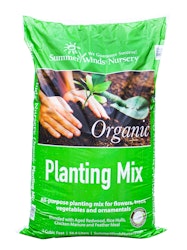
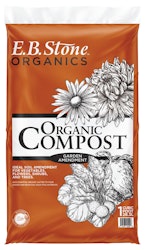
Soil & Fertilizer Tips:
Enrich existing soil with SummerWinds Planting Mix, E.B. Stone Organic Compost or E.B. Stone Organics Raised Bed Mix. Use Sure Start at planting and feed regularly with Veggie & Fruit Food to keep things thriving.
 Don’t Know What to Plant? Start Here!
Don’t Know What to Plant? Start Here!
A well-rounded edible garden starts with these versatile, easy-to-grow favorites:
| Vegetables | Herbs | Small Fruits |
|---|---|---|
| Cherry Tomatoes | Basil | Strawberries |
| Zucchine or Summer Squash | Cilantro | Blueberries |
| Lettuce Mix | Thyme | Raspberries |
| Bush Beans | Parsley | Blackberries |
| Carrots | Rosemary (Perennial) | |
| Cucumbers | Sage | |
| Peppers |
These selections offer a mix of flavors, colors, and harvest windows, giving you the perfect jumping-off point for fresh, homegrown meals all season long.
Make the Most of Every Season
Our Bay Area climate means you can garden nearly every month of the year. Take advantage by practicing succession planting—replanting your beds every few weeks or with the seasons to keep your harvest going strong. This not only gives you a steady supply of produce but also keeps your garden looking fresh and productive.
Need help matching plants to your sun conditions or figuring out your best edible garden layout? Stop by your local SummerWinds Nursery and our knowledgeable SummerWinds team will be happy to help!

